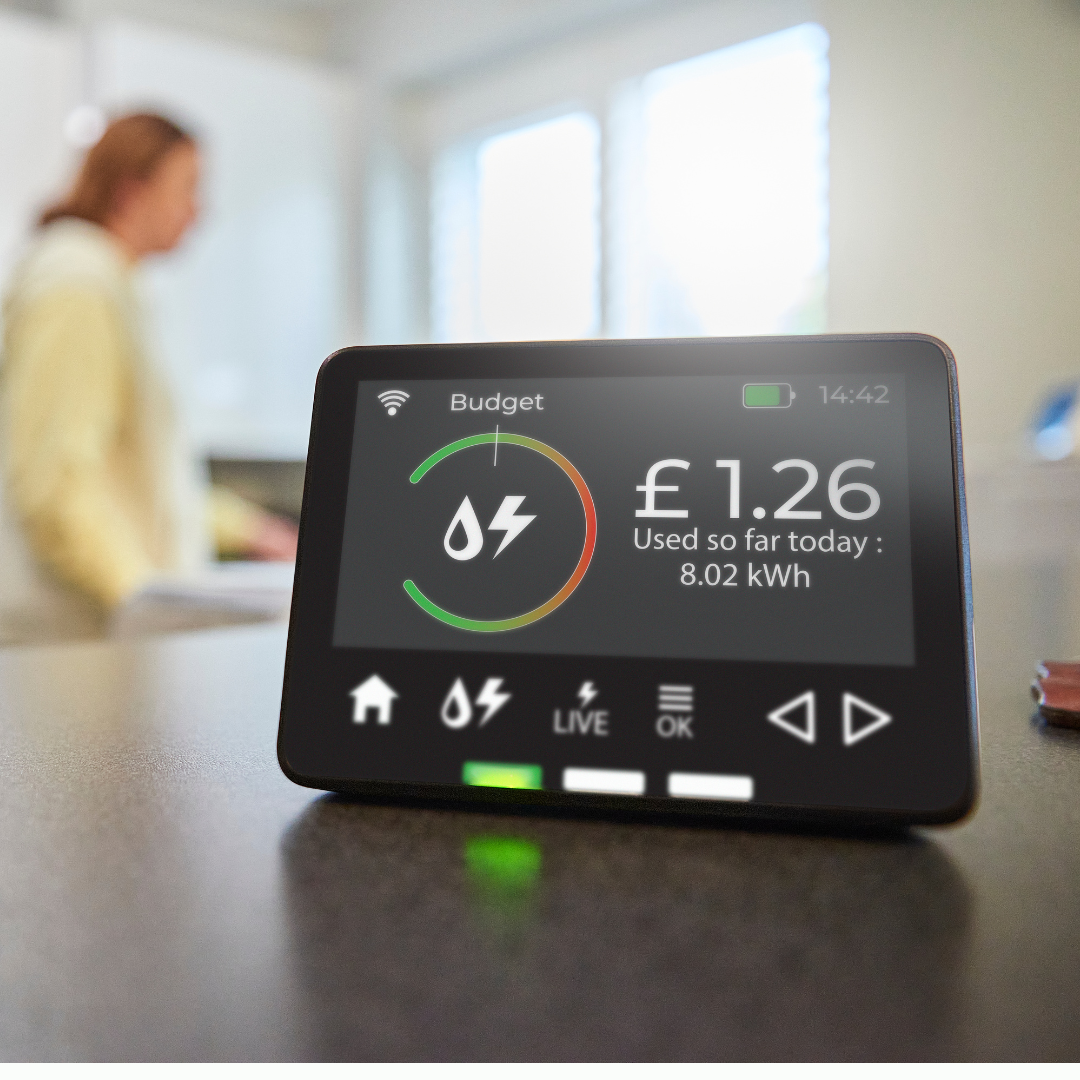Peter originally trained as an architectural technician and soon discovered a deep-rooted passion for low-energy design in buildings. Back then, that meant championing cavity wall insulation, a far cry from the more advanced energy solutions we see today. But Peter’s commitment to driving change in how buildings use energy has never wavered, and he’s loved watching the message of sustainable design spread far and wide.
Peter travelled across the country conducting building condition surveys, assessing nursing homes, promoting energy efficiency grants, and fielding calls to offer energy efficiency advice and support. His experience working for local councils grounded his approach in practical solutions for local communities.
In 2001, Peter stepped into the role of CEO at Energy Projects Plus. Since then, the organisation has grown significantly: expanding its reach, relocating twice, and constantly adapting to meet the changing needs of the communities we serve. Under Peter’s leadership, Energy Projects Plus has become a respected and trusted voice in the fight against fuel poverty and in the promotion of home energy efficiency and sustainable living across Merseyside and Cheshire.
Thanks to Peter’s vision and determination (including graduating in 2012 with a BSc (Hons) Environmental Studies through the Open University), we’ve helped hundreds of thousands of people save energy, cut costs, and reduce their carbon footprint. And while so much has changed in the energy landscape over the last 25 years, our mission remains the same: to empower people with the knowledge, resources, and support they need to live more energy-efficient lives.
A message from David Pye, Trustee at Energy Projects Plus:
“It’s 25 years ago that Peter joined Energy Projects Plus, and on becoming CEO he has worked tirelessly to expand the range of activities performed by Energy Projects Plus to make it the highly respected charity it is today. Peter sought out various sources of new funding, oversaw moving premises twice and introduced innovative ways to promote energy efficiency throughout Merseyside and Cheshire. The trustees and staff are thankful and tremendously proud of all he has achieved.”
Here’s to 25 years of dedicated leadership and 25 more to go!
Thank you, Peter from everyone here at Energy Projects Plus!


Eligible households encouraged to check they are named on their electricity bill to automatically benefit from the Warm Home Discount this winter.
- Government issues reminder to those on eligible means-tested benefits to check they are named on their electricity bill to get £150 off this winter
- This will help ensure people automatically receive the discount from their energy supplier, putting more money in their pockets under the Plan for Change
- Follows the extension of the Warm Home Discount, meaning an extra 2.7 million households will qualify this winter
Millions are set to save £150 on their electricity bills this winter, as the government urges eligible households to check they are named on their bill to get the discount automatically – helping ease the cost of living under the Plan for Change.
Every household where the billpayer receives an eligible means-tested benefit will now be in line for the discount, after the government removed restrictions that previously excluded many who needed help with bills.
In England and Wales, this means households in receipt of Housing Benefit, Income-related Employment and Support Allowance, Income-based Jobseeker’s Allowance, Income Support, Pension Credit and Universal Credit will now be eligible.
This takes the number of households set to benefit from the Warm Home Discount to over 6 million – an increase of 2.7 million households, including 900,000 more families with children.
The government is now issuing a call to eligible households to check they are named on their electricity bill, with suppliers set to rely on customers’ records as of Sunday, 24 August.
Someone might not be named on their electricity bill if they have recently moved house and changed supplier.
Having the eligible person named on the electricity bill will help make sure households receive the £150 discount automatically.
Last winter, 96% of eligible households received their discount automatically through this route, making it the easiest and quickest way for the overwhelming majority of households.
Minister for Energy Consumers, Miatta Fahnbulleh, said:
We took decisive action earlier this year to expand the Warm Home Discount, giving more working families certainty and peace of mind before winter.
I now want to make sure as many eligible households as possible get £150 off their energy bill, putting more money in their pockets as part of our Plan for Change.
If you know someone who might be eligible – please start spreading the word to family and friends, encouraging them to check they are named on their energy bill.
Eligible customers on pre-payment meters who use a key or card to top up will also need to ensure that their household’s account is registered in their name.
If you’re in receipt of a means tested benefit, but unsure about your energy account details, contact your energy supplier without delay, so you don’t potentially miss out on this £150 payment.
People who could qualify for winter fuel payments from the government have been warned by police about a rising number of scams.
Det Sgt John Causton, from Merseyside Police’s economic crime team, said 45 of the 75 reports his force had received since June 2024 about attempted cons had come during the last two months.
Fortunately, he said nobody who had approached police after receiving suspicious emails or text messages had been duped into losing money.
But he added: “What we are concerned about is the people who may not have reported it and who may have been victims.”
‘Exploiting uncertainty’
Det Sgt Causton said criminals were sending texts and emails as well as phoning people while “pretending to be from the Department for Work and Pensions (DWP), asking for personal information”.
He said the DWP never operated this way and had only contacted people via letter between October and November to confirm they were automatically eligible for the payments.
Describing the scammers as “very convincing”, the senior detective warned that anyone clicking on a link or phoning a bogus number would be putting themselves in “financial risk”.
Merseyside Police said the spike in fraud attempts “appears timed to coincide with the government’s recent changes to winter fuel payment eligibility criteria”.
A force spokesman added: “Fraudsters are exploiting this period of transition and public uncertainty about the changes to target vulnerable individuals, particularly older residents.”
You could get free energy saving improvements made to your home if you’re on a low income, getting certain benefits or living in a certain postcode area.
What you can get
If you’re eligible and your local council has funding available, they will arrange a home survey to see how your home could be made more energy efficient. They might suggest improvements like installing:
- wall, loft and underfloor insulation
- air source heat pumps
- smart controls
- solar panels
Your local council will then organise and pay for any improvement work they’ve agreed with you. You will not need to pay for it.
If you have a landlord, they may need to pay for some of the improvements. (Typically, private landlords can receive free improvements for one tenanted property, then they will need to pay 50% of the cost for improving more properties in their portfolio. Social landlords have their own scheme, separate to Warm Homes: Local Grant.)
Eligibility
To be eligible, your home must:
- Be in England
- Be privately owned (either by you or your landlord)
- Have an Energy Performance Certificate (EPC) of D, E, F or G – if you do not know your home’s EPC, you can search for it here: https://www.gov.uk/find-energy-certificate
Your household income must usually be £36,000 a year or less. If you earn more than that, you might still be eligible if either:
- You live in a certain postcode area (if your postcode is in “IMD Decile” 1 or 2 on this lookup table)
- Someone in your household is in receipt of certain, means-tested benefits
How to find out more, and apply
Our friendly team of Energy Advisors will be happy to provide support either over the telephone, or in your home.
We can provide your home with an energy assessment, to determine whether the Warm Home: Local Grant is the right scheme to help you. There could be other schemes that are better suited to provide you with free home improvements, e.g. the Energy Company Obligation, the Great British Energy Scheme, and the Boiler Upgrade Scheme. We know the schemes, so you don’t have to!
Call our Save Energy Advice Line free on 0800 043 0151, or email the team at advice@epplus.org to find out more about the grant, or for assistance in applying. Lines are open 9am-5pm, Monday-Friday, apart from Bank Holidays, and the 3 working days between Christmas and New Year.
You can also submit a self-referral form to us, by clicking the button below:

OFGEM is planning to introduce new smart meter rules from early 2026, which would provide customers with stronger rights and automatic compensation if suppliers fail to deliver installations or repairs promptly.
OFGEM has proposed 4 new rules, which would mean consumers facing delays or faults would receive automatic compensation.
Proposed new rules include:
- Compensation if installation takes more than 6 weeks.
- Compensation for failed installations due to supplier faults.
- A requirement for suppliers to provide a resolution plan within 5 working days when a problem is reported.
- Compensation if a smart meter isn’t fixed within 90 days when not operating in “smart mode.”
The changes will also cover wider connectivity issues, enhanced protections for households and extend to microbusinesses who will benefit from improved smart meter rights. Suppliers that don’t meet these standards will have to pay affected customers automatically (currently set at £40 per failure).
This move follows OFGEM’s compliance work over the past year, which has seen over 600,000 faulty smart meters repaired or replaced.
The aim is to improve customer experience, speed up installations and repairs, and rebuild public trust in smart meters, which already operate in 66% of British homes.
You can read the full press release from Ofgem on their website.
What to Do if Your Smart Meter Isn’t Working
If your smart meter is faulty, showing incorrect readings, or not sending data to your supplier:
- Contact your energy supplier straight away
- Explain the problem clearly.
- Ask for a clear resolution plan and timeframe.
- Keep manual meter readings
- Give these to your supplier to make sure your bills stay accurate.
- Know your rights
- If your supplier misses deadlines for fixing the fault (including making and keeping appointments, investigating and fixing/replacing credit or prepayment meter faults or switching supplier within five working days) you may be entitled to £40 automatic compensation under the Guaranteed Standards of Performance.
- Keep records
- Note the date you reported the fault, who you spoke to, and any reference numbers.
- Escalate if needed
- If the problem isn’t fixed within 8 weeks, you can take the issue to the Energy Ombudsman for free


